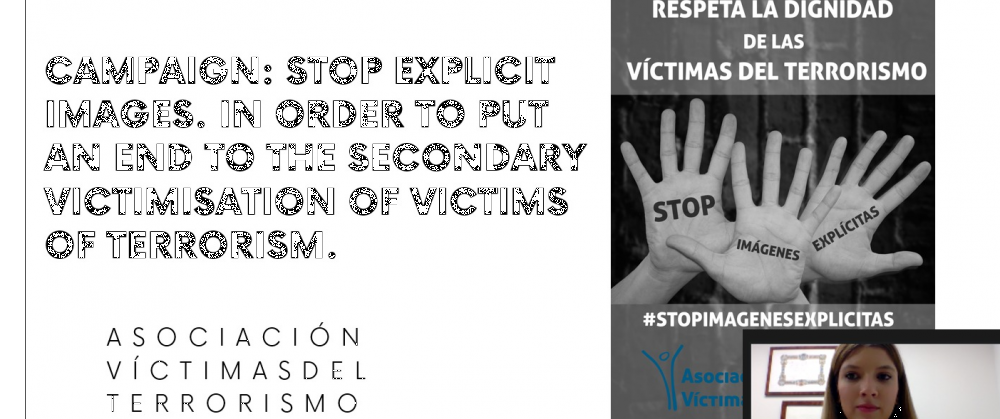Noticia

NOTICIA - 12-06-2024
AVT at EUCVT webinar
As a member of the European project EUCVT (Centre of Expertise for Victims of Terrorism), AVT had the honour of participating on 23 April in a webinar entitled ‘The use of social networks after a terrorist attack: a useful information tool or a factor of additional victimisation?
During the webinar, speakers had the opportunity to discuss the various ways in which social media can be beneficial and/or problematic in the aftermath of an attack. The use of social media, especially in the aftermath of a terrorist attack, can be polarising. On the one hand, social media provides an immediate and accessible means of disseminating crucial information to the public, offering support to those affected through real-time updates, eyewitness accounts and official statements. However, social media can also be manipulated to amplify fear, spread misinformation and glorify violence. False accounts, explicit images and propaganda can exacerbate panic and anxiety, causing the dreaded re-victimisation. In addition, the rapid dissemination of unverified information can hamper police work and sow distrust in the authorities.
The different speakers were able to discuss all of this:
- Diana Úbeda, Psychologist, coordinator of the AVT's international project and head of the Association's Events Department.
- David Fritz Goeppinger, Photographer and Writer, who happened to be one of the hostages in the Bataclan bombing: Testimony - David kept a diary on social networks throughout the trial for the Paris attacks: what positive or negative impact did this have on him, on other victims and on society as a whole?
- Philippe Vansteenkiste, founder of V-Europe and victim of the 2016 Brussels attacks.